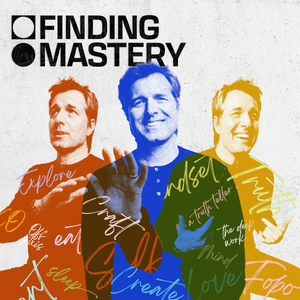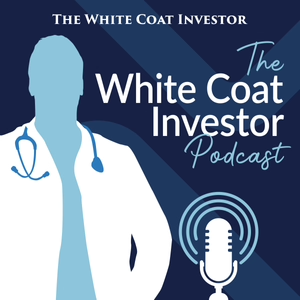
The Wright Center’s residency program keeps advocacy at the core — Patrick Kinner and Nickia King, DO
03/17/19 • 49 min
Elizabeth Metraux is having two thoughtful conversations at Unity Health Care in Washington, DC, a Teaching Health Center connected with The Wright Center for Graduate Medical Education. She speaks with Patrick Kinner and Dr. Nickia King about the gap between what is taught in medical schools and the realities of daily practice, particularly the social determinants of health.
Patrick Kinner is an evaluator with the Vermont Department of Health and the Center for Behavioral Health Integration, where he lends his evaluation expertise to statewide and national population health initiatives. Patrick shares his views on medical school programs, burnout, and the length healthcare providers go to take care of patients.
Nickia King, DO, is a third-year family medicine resident at Unity Health Care. She discusses her experience as a Wright Center resident working in community healthcare, the role of advocacy in care, and ways providers can address the myriad problems of illness that go far beyond the walls of the clinic.
This episode aims to raise awareness about the work of Teaching Health Centers, a crucial part of the solution for moving American healthcare forward. Listen to this inspiring episode for a fresh perspective and a promising future for healthcare.
Key takeaways:
[:30] Partnership with The Wright Center for Graduate Medical Education.
[2:05] Teaching Health Centers’ purpose and impact.
[2:30] Unity Health Care
[4:21] Patrick Kinner’s work motivation.
[5:14] Bringing a family residency program into underserved areas.
[6:15] Consistent themes nationwide.
[7:31] Difference between what school prepares you for and what your actual job is.
[8:22] Medicals schools are not well-equipped to be nimble and change.
[8:53] Differences between DO and MD programs.
[10:22] Burnout and professional disengagement
[11:30] Reaching a saturation point.
[12:37] Mental health clinicians’ burnout rates.
[16:02] Patrick Kinner’s insights about himself as a patient.
[20:16] Healthcare providers have been self-diagnosed and self-treated for decades, as well as treating issues that should not be presented to them.
[22:04] Big public institutions reflect the community that they are in.
[23:58] Nickia career briefing.
[24:18] What brought Nickia into medicine?
[24:50] Washington, DC living experience.
[26:08] Why working at a community health center?
[28:23] Focusing on advocacy
[28:57] Nickia started teaching in health centers.
[31:12] Access to healthy food, safety, and education.
[32:45] What ought we to do as providers? Take care of the whole person.
[34:22] Social determinants of health.
[34:56:] Statistics about black individuals’ health.
[36:44] Prison population
[38:43] What did the experience in DC teach Nickia about herself?
[40:01] Nickia starting to work in the prison system.
[40:52] Crying for the first time with a patient.
[44:24] Treating both the illness and the illness experience.
[44:59] Humanism in medicine.
[46:50] Coming from a long line of strong women.
[48:47] Seven months away from getting out of residency, what are Nickia’s plans for the future?
[49:37] Preventing burnout.
[50:07] What does Nickia wish she would have known in her first year of residency?
[52:06] Advice to young black women who are considering a career in medicine.
Mentioned in this Episode:
Relational Rounds at Primary Care Progress
Elizabeth Metraux is having two thoughtful conversations at Unity Health Care in Washington, DC, a Teaching Health Center connected with The Wright Center for Graduate Medical Education. She speaks with Patrick Kinner and Dr. Nickia King about the gap between what is taught in medical schools and the realities of daily practice, particularly the social determinants of health.
Patrick Kinner is an evaluator with the Vermont Department of Health and the Center for Behavioral Health Integration, where he lends his evaluation expertise to statewide and national population health initiatives. Patrick shares his views on medical school programs, burnout, and the length healthcare providers go to take care of patients.
Nickia King, DO, is a third-year family medicine resident at Unity Health Care. She discusses her experience as a Wright Center resident working in community healthcare, the role of advocacy in care, and ways providers can address the myriad problems of illness that go far beyond the walls of the clinic.
This episode aims to raise awareness about the work of Teaching Health Centers, a crucial part of the solution for moving American healthcare forward. Listen to this inspiring episode for a fresh perspective and a promising future for healthcare.
Key takeaways:
[:30] Partnership with The Wright Center for Graduate Medical Education.
[2:05] Teaching Health Centers’ purpose and impact.
[2:30] Unity Health Care
[4:21] Patrick Kinner’s work motivation.
[5:14] Bringing a family residency program into underserved areas.
[6:15] Consistent themes nationwide.
[7:31] Difference between what school prepares you for and what your actual job is.
[8:22] Medicals schools are not well-equipped to be nimble and change.
[8:53] Differences between DO and MD programs.
[10:22] Burnout and professional disengagement
[11:30] Reaching a saturation point.
[12:37] Mental health clinicians’ burnout rates.
[16:02] Patrick Kinner’s insights about himself as a patient.
[20:16] Healthcare providers have been self-diagnosed and self-treated for decades, as well as treating issues that should not be presented to them.
[22:04] Big public institutions reflect the community that they are in.
[23:58] Nickia career briefing.
[24:18] What brought Nickia into medicine?
[24:50] Washington, DC living experience.
[26:08] Why working at a community health center?
[28:23] Focusing on advocacy
[28:57] Nickia started teaching in health centers.
[31:12] Access to healthy food, safety, and education.
[32:45] What ought we to do as providers? Take care of the whole person.
[34:22] Social determinants of health.
[34:56:] Statistics about black individuals’ health.
[36:44] Prison population
[38:43] What did the experience in DC teach Nickia about herself?
[40:01] Nickia starting to work in the prison system.
[40:52] Crying for the first time with a patient.
[44:24] Treating both the illness and the illness experience.
[44:59] Humanism in medicine.
[46:50] Coming from a long line of strong women.
[48:47] Seven months away from getting out of residency, what are Nickia’s plans for the future?
[49:37] Preventing burnout.
[50:07] What does Nickia wish she would have known in her first year of residency?
[52:06] Advice to young black women who are considering a career in medicine.
Mentioned in this Episode:
Relational Rounds at Primary Care Progress
Previous Episode

The Healing Power of Stories with Jonathan M. Adler, Ph.D.
Jonathan M. Adler, Ph.D. is Chief Academic Officer and Co-Director of Healing Story Sessions for Health Story Collaborative, an amazing organization that champions the use of story and medicine as a tool for connection, healing, and action. Jonathan Adler has a Ph.D. in clinical and personality psychology from Northwestern, he is a clinical psychologist, member of the editorial team of the Journey of Personality and professor at Olin College. His research focuses on how we make sense of challenging experiences in the way that meaning-making impacts our sense of self and psychological well being. Jonathan Adler uses his personal narrative as a vehicle for studying meaning-making and identity, with a special interest in the experience of illness and healing.
In this outstanding episode, Jonathan Adler deeply shares his passion and knowledge about narrative and how it is intricately involved in every part of human life, even recognizing our ability to tell stories as the most distinctive human adaptation. Jonathan brings light to the fact that people find meaning and identity when telling stories; and how at the same time in the act of narrating, connections are being made among individuals and with society as a whole.
Key takeaways:
[:37] Jonathan Adler’s career briefing
[2:05] How did Jonathan Adler enter this particular space?
[4:15] Science and stories.
[5:21] How do we use stories for healing?
[6:54] Narrative is everywhere.
[7:42] Narrative is the tool we use to make sense of our lives.
[8:00] What has Jonathan Adler learned about himself in this work?
[9:36] Master narratives: What a culture believes is supposed to be narrated.
[10:18] Why U.S. narrative is so focused on redemption?
[13:16] Narrative is the nexus between self and society.
[14:10] Finding compatible narratives.
[15:17] Every political movement has its own narrative.
[17:03] Jonathan Adler’s work with illness.
[19:35] Telling your story is an intervention itself.
[21:35] Many people go into medicine because of the relational aspect with their patients.
[23:31] We need more space for the connections that only stories can provide.
[24:04] How can someone start in storytelling?
[26:02] Stories of people that acquire major disabilities in adulthood.
[28:16] Rapid-fire questions.
Mentioned in this Episode:
Relational Rounds at Primary Care Progress
Primary Care Progress on Twitter
Email Jonathan Adler: [email protected]
Next Episode

A New Perspective in Medical Education— Dr. Mark Schuster, MD. Ph.D.
A physician, scientist, educator, and advocate for healthy families and communities, Dr. Mark Schuster is an international leader on quality of care, health disparities, and prevention. Author of two books and more than 200 journal articles, Dr. Schuster was appointed founding Dean and CEO of the Kaiser Permanente School of Medicine in 2017. The school is set to open its doors to an inaugural class of aspiring clinicians this year.
As talk of graduate medical education reform continues to reverberate in the healthcare community, Kaiser Permanente is betting on a more integrated approach that brings students into a large health system at the very beginning of their training, with an emphasis on primary care, prevention, and innovation.
Key takeaways:
[:30] Dr. Mark Schuster career briefing.
[1:37] Why is Dr. Schuster a “man to watch”?
[2:14] Uniqueness about Kaiser Permanente.
[4:10] A school focused on medical education with the most effective approach
[5:29] What is wrong with the current medical education?
[6:38] What does Dr. Schuster wish he had learned in his medical training?
[8:54] Changes Kaiser Permanente is implementing in the ways students are learning.
[9:29] Integrating foundational science, clinical science, and health system science.
[11:52] Spiral approach.
[12:13] No cadaver labs.
[14:03] Does being in direct contact with a body provide a level of humanism?
[14:16] Medical students in the first year will be with physicians and the medical team, seeing patients in a primary care setting.
[17:05] Tackling social determinants of health in medical education.
[20::30] The power of each individual physician as a local advocate
[22:53] Role of physicians in gun violence.
[24:20] Burnout, training for doctors to keep their own self-care.
[25:48] Students connected to faculty.
[26:19] Regular consultations of students with a psychologist
[27:15] Academic support.
[27:50] Encouraging students to take breaks
[28:12] REACH weeks.
[29:50] Are we going soft?
[33:07] Being a dean of a medical school.
[34:44] Rapid fire questions
Mentioned in this Episode:
Relational Rounds at Primary Care Progress
If you like this episode you’ll love
Episode Comments
Generate a badge
Get a badge for your website that links back to this episode
<a href="https://goodpods.com/podcasts/relational-rounds-474428/the-wright-centers-residency-program-keeps-advocacy-at-the-core-patric-63773355"> <img src="https://storage.googleapis.com/goodpods-images-bucket/badges/generic-badge-1.svg" alt="listen to the wright center’s residency program keeps advocacy at the core — patrick kinner and nickia king, do on goodpods" style="width: 225px" /> </a>
Copy




